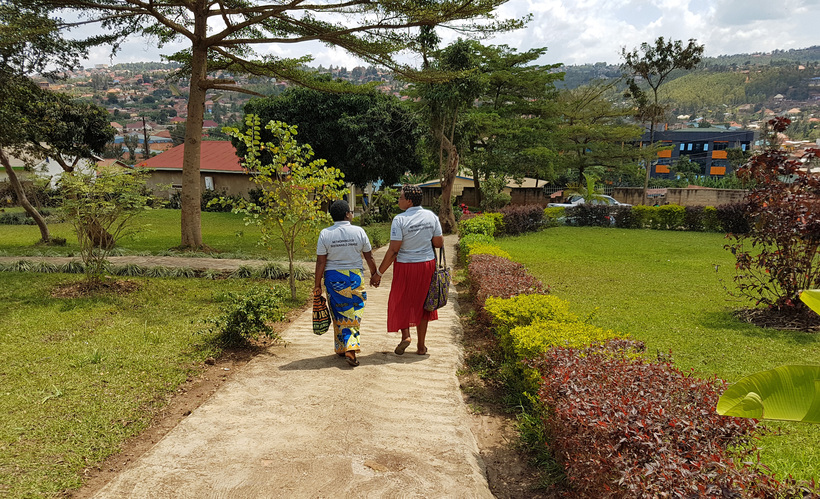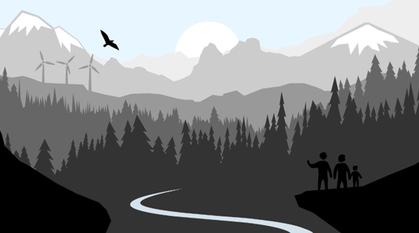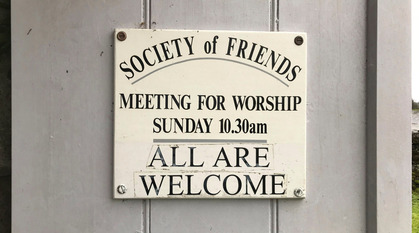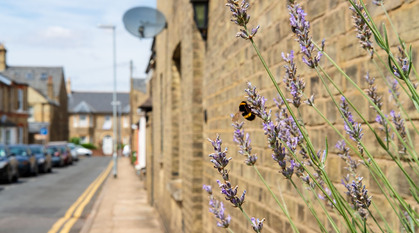Turning the Tide: a year of nonviolent campaigning in East Africa
From campaigning against domestic violence to helping a village get connected with electricity, the Quaker-supported work of Turning the Tide has been making a big difference in East Africa. Tobias Wellner shares some highlights from the past year.

The past year has been a huge one for Turning the Tide (TTT) in East Africa, with programmes in Kenya, Burundi and Rwanda reaching more people than ever before.
Turning the Tide's aim, inspired by the Quaker peace testimony, is to support nonviolent social change at the grassroots. The movement began in Britain and, thanks to a visit by volunteers to Kenya in 2010, now has a vibrant and growing presence in East Africa. My colleagues in East Africa have adapted and extended the approach and I support three locally led teams as part of the centrally-managed work of Quakers in Britain.
A big part of my East African colleagues' work has been in training people in how to bring about change in a nonviolent way. In 2018, 10 full-time TTT staff, together with 62 volunteers, managed to train 1,105 people in nonviolent campaigning. They also engaged with 52 nonviolent social justice campaigns carried out by grassroots organisations ranging from women's groups to environmental groups to youth clubs.
2018 also saw a very special event: the first ever TTT East Africa gathering, which took place in October and was attended by more than 30 peace campaigners from TTT programmes in Rwanda, Kenya and Burundi.
I attended the gathering with my colleague Lisa Cumming from TTT Britain, and we learned a lot from our colleagues as they worked to exchange experience and skills and build cross-border relationships. Excitingly, a delegation from Northern Nigeria also participated in the gathering and there is interest in starting a TTT programme there.
A huge amount of work has gone on in the three countries that currently have dedicated TTT teams. Below I've brought together examples of just a few of the successful campaigns that my colleagues have been working on.
Educating on land rights in Kenya
In Western Kenya, two TTT supported grassroots organisations joined forces to tackle land grabbing by powerful people. Land conflicts are a common problem in Kenya, and often those being forced off their land lack the awareness of land rights or necessary resources to fight back legally. As part of its work, TTT provided information on land rights to people who could not afford lawyers, giving them the knowledge to make a legal claim to the land.
In North Rift Valley, a TTT-trained youth group launched a successful campaign to restore access to water for several thousand people. They had been cut off from running water for eight months after government officials stalled crucial pipe repairs.
In Nairobi, a TTT supported group successfully campaigned to set up a child protection system at local governmental offices. This has significantly increased awareness of children's rights and protection of children in the area.
Responding to domestic violence in Rwanda
Some TTT work has focused on women's and children's rights, and the team in Rwanda shared two powerful examples of this.
With TTT's support, a women's group in Gicumbi organised several community gatherings to raise awareness of the effects of domestic violence. Several hundred people attended each gathering, and within five months group members had helped to solve 15 severe family conflicts.
In Rubavu TTT carried out a training with representatives of a 3,500 member-strong transport union. When the TTT team discussed with them what violence means, one man stood up and said that he was beating his wife almost every day. The next day, the man came back to the training and announced that, thanks to the training opening his eyes to his wrongdoings, he had decided to stop beating his wife and to change his behaviour.
Following the training, the group of union reps launched an anti-domestic violence campaign among their members. According to the union, cases of severe family conflict have significantly decreased among members since the beginning of the campaign.
Campaigning for change in Burundi
The TTT team in Burundi has been very vocal about the benefits of nonviolent campaigning and even managed to share information about the benefits and methodology of nonviolence on national radio.
In Gitega a TTT-trained group improved the living conditions of several hundred people when it held a campaign that pressed for electricity supplies to connect an entire village, two hospitals and one school.
TTT Burundi also supported campaign groups that launched nonviolence initiatives against abusive and corrupt local leaders, encouraging local people to agitate for change in a nonviolent way.
The year ahead promises even more nonviolent campaigning, training and knowledge sharing from Turning the Tide teams in East Africa as the network continues to grow and evolve. If you'd like to stay informed about this work sign up to our East Africa peacebuilding newsletter, follow us on Twitter @AfricaQPSW or look out for #EastAfricaTTT.


